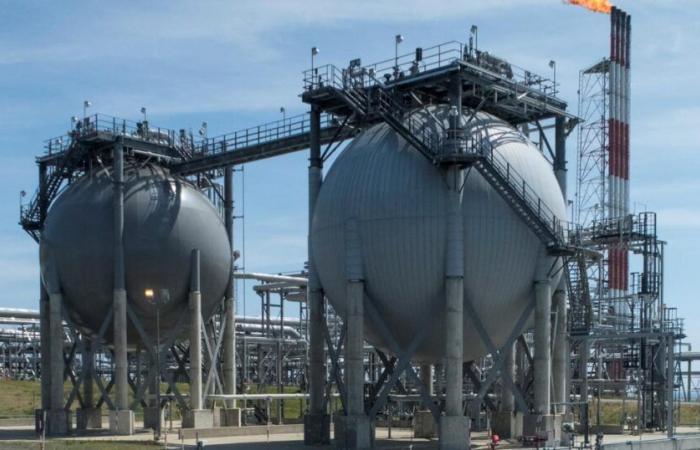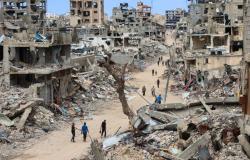The situation in Europe is «stable»with the exception of Moldova, after the end of the transit of Russian gas via Ukraine, effective since Wednesday, the Polish presidency of the European Union said on Thursday. “The situation is stable with all (EU) member states resorting to both winter storage and imports from third countries, providing a stable offer to consumers”said one of its spokespersons. “No increase in gas prices has been observed”he added.
However, the price of European gas reached the symbolic mark of 50 euros per megawatt hour on Tuesday, a first in more than a year, and remained at this level on Thursday. Regarding the situation further “worrying” in Moldova – a non-EU member country – the Polish presidency called on EU countries to “to strenghten” their support and coordination with the authorities in Chisinau in order to avoid any shortage.
“No concerns”
Deliveries of Russian gas to Europe via Ukraine definitively ceased on Wednesday, after the expiration of a contract signed between the two parties at the end of 2019 and maintained despite Russia’s invasion of the country. This stop, which concerns almost a third of total Russian gas deliveries to Europe, worries several Eastern European countries, notably Moldova, particularly vulnerable, and Slovakia which has warned of serious consequences.
The European Commission and Central and Eastern European member states took stock at a joint meeting on Thursday and are due to meet again on January 7 to assess the situation. “There is no concern” concerning gas deliveries, the Commission indicated in a press release following this meeting. The gas supply has been strengthened with deliveries “significant” of liquefied natural gas (LNG) since the Russian invasion of Ukraine in February 2022.
Gas storage levels in Europe reach 72%, a level slightly higher than last year at the same time, assured the Commission. Russian gas exports to Europe via Ukrainian territory amounted to just over 14 billion cubic meters per year, according to official figures. In recent weeks, Hungary and Slovakia have complained about seeing the tap cut off. Since Wednesday, Poland has held the rotating six-monthly presidency of the EU Council of Ministers.
Swiss






